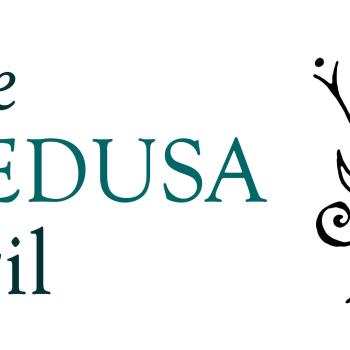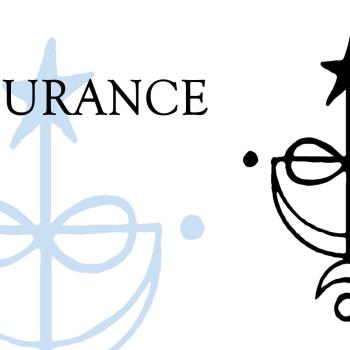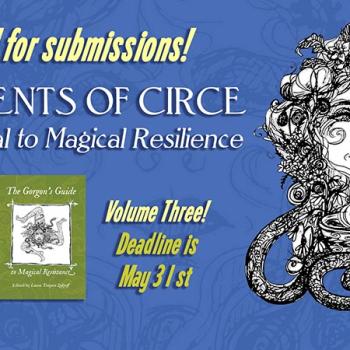
If you’ve spent even a hot minute in any of the P-word communities, you’ve probably heard any or all of the following (and feel free to switch “witch” out for your hot button word):
“You’re not a real witch if you hex.”
“You’re not a real witch if you don’t hex.”
“You can’t be a witch and believe in gods.”
“You can’t be a witch and NOT believe in gods.”
“If you don’t practice or believe this, then you’re not a real _____”
“You can only be a witch if you have this initiation process.”
“You can only be a witch if it’s documented in your blood for centuries.”
“_____ aren’t real witches.”
“Only real witches do _____.”
“You can’t call yourself a witch because you’re not the right gender/color/age/religion.”
“Nobody should call themselves a witch because _____”
“Unless you live in the woods/are in direct contact with nature all the time, you’re not a real witch.”
We can credit memes with minting a new combination of limited sentiment mixed with image, but the sharing of limited sentiments is nothing new. You can change out the word “witch” for any number of sensitive labels and combine it with a similar limited statement (Pagan, Polytheist, Christian, gender, practitioner, etc) and pretty much plop it down anywhere on the human timeline.
There was a time in my late teens and early 20’s when I was very adamant about the difference between being a Witch and being a Wiccan. I wasn’t Wiccan and I bristled at the suggestion, even if it was a generally well-meaning person trying to show their understanding: “Oh you’re a Witch? My daughter is a Wiccan too!” If you try to explain why you believe a Wiccan and a Traditional Witch are very different to that nice older lady, you’re going to get a blank stare. They don’t care, they were just trying to be nice/make a connection/relate to you. It’s just like trying to explain the difference between a Catholic, a Methodist, and a Lutheran to someone who doesn’t really care.
In the 20 or so years since then I’ve learned a few things:
– It is not my concern or issue to worry about how other people choose to label themselves, I can’t control what others do, only be responsible for what I do and the resulting reactions.
– The only person to whom the label truly matters to is myself
– What I do is far more important than what I call myself or what others may call me, and the same goes for everyone else. People’s actions are more important than their labels.
It’s one thing to be concerned with what someone calls themselves is seen by the general public – we still see unfortunate, misinformed news headlines “Ritual Murder”, “Wiccan Sacrifice”, “So-Called Druid is found guilty of…” But I think most of the current unrest is really in-community bickering about semantics.
I’d venture that the reason that it’s a thing is because we’re relatively young as a “community”, but I also know from personal experience that other groups do it too – whether it’s Jews, Christians, Gamers, or Bellydancers. I think that maybe the root of it is insecurity – impostor syndrome if you will – worrying about if we’re doing it right and what will others think of us? If that person is really what being an X is all about, what does that make me? Perhaps another part is the desire to get involved in other people’s business and prove oneself more superior in some way.
Also, I think we all do enjoy a visit to the catty corner at some point, myself included. It’s a relief to roll our eyes and poke fun at something that doesn’t fit our spectrum. My particular pokey spot is people espousing damaging practices. The problem is finding the thin line between comic relief and being a complete asshole (which again, I feel sometimes I myself also have a problem distinguishing – but as my friend Michael wisely noted to me, “We all have our flaws.”). The best way to combat the whole thing is to respectfully suggest resources that may have better information (people, books, links, etc) and/or put your own work out there. (We can bitch about it, or we can actually do something productive about it.)
So here are a few more sentiments that may bring you some peace (or make you want to send me hate mail). Alas, most of them are too long for a meme or animated gif (but if you’re inspired and up for the challenge, go ahead and put them in the comments!):
– How you see and interact with the divine is important only to you and the divine – and the people you might directly work with.
– The age or origin of any path or tradition is meaningless and not up for comparison for validity points. Everything started somewhere, and most (if not all) have sketchy origins littered with truth. Church of England anyone? If it works, it works – and don’t assume that a practitioner isn’t aware of their path’s origins. It’s their path, it works for them. It doesn’t have to work for you.
– Everyone starts somewhere, we’re all newbies at some point. Only Athena and a few others were born fully-formed and that was not a guarantee they had their shit together either.
– Do the work – in particular do YOUR work.
– When you’re interacting with someone and they use a label to describe themselves, a great way to actually interact with them is to ask “What does that word mean to you?” It can be a great way to start a really interesting and healthy discussion.
– Lastly, and most importantly, don’t be a dick. Unless of course, all you are is a sentient organ for reproductive purposes only – then you probably don’t have eyes either, so you wouldn’t be reading my blog.

















